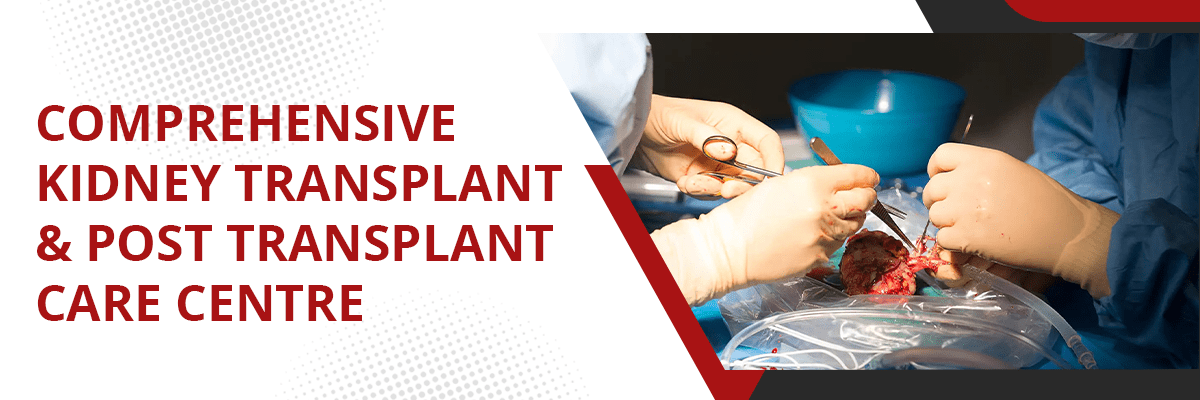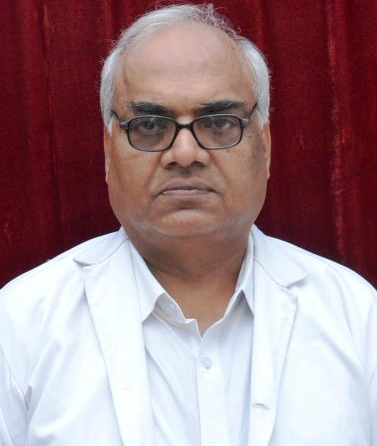
About
A Kidney Transplant In Bareilly is a surgical procedure in which a healthy kidney from a living or deceased donor is transplanted into a person whose kidneys have failed. The kidney’s main function is to filter and eliminate waste, minerals, and fluid from the bloodstream through urine production.
Who Needs A Kidney Transplant?
A kidney transplant is needed when the kidneys lose their ability to filter, harmful quantities of fluid and waste build up in the body, raising blood pressure (losing 90% of their ability to function normally) and ultimately leading to renal failure (end-stage kidney disease).
A kidney transplantation is linked to:
- A higher standard of living
- Death risk is reduced
- There are fewer dietary limitations
- Reduced treatment costs
What Are The Different Types Of Kidney Transplants?
1.Deceased-donor kidney transplant
A deceased-donor kidney transplant is conducted when a kidney from a recently deceased donor is removed with the family’s permission or from a donor card and put into a recipient whose kidneys have failed and no longer work properly. The kidney is stored on ice or linked to a machine that delivers oxygen and nourishment until it is transplanted into the recipient. To decrease the amount of time the kidney spends outside of a human body, the donor and receiver are usually in the same geographic location as the transplant center.
2.Living-donor kidney transplant
A living-donor kidney transplant is when a living donor’s kidney is removed and transplanted into a recipient whose kidneys have failed. Living-donor kidney transplant is an alternative to deceased-donor kidney transplant since only one given kidney is required to replace two failing kidneys.
3.Preemptive kidney transplant
A preemptive kidney transplant is performed before the kidney function deteriorates. Dialysis is required to replace the kidneys’ usual filtering function. The preferred treatment for end-stage renal disease is a preemptive kidney transplant.
How Is A Kidney Transplant Performed?
The patient will not be conscious throughout the kidney transplant because it’s done under general anesthesia. The
The new kidney is implanted into the body through a surgical incision in the bottom half of one side of the abdomen. They are left in place until they produce complications such as high blood pressure, kidney stones, discomfort, or infection.
The new kidney’s blood vessels are connected to blood veins in the lower abdomen, directly above one of the legs. The ureter, which connects the kidney to the bladder, is attached to the bladder in the new kidney.
What Are The Possible Risks Of Kidney Transplants?
Kidney transplant surgery has a high risk of complications, such as:
- Bleeding and blood clots
- The tube (ureter) that connects the kidney to the bladder leaks or becomes blocked.
- Infection
- The transplanted kidney fails or is rejected.
- An infection or malignancy that could be passed on to the recipient of the donated kidney
- Heart attack and stroke
What Can You Expect During The Post-Operative Care For Kidney Transplant?
The patient can expect the following after the transplant:
Spend a few days to a week in the hospital—Doctors will keep an eye on the patient at the hospital’s transplant recovery unit for any signs of difficulties. The new kidney will allow the patient to pass urine in the same way as the previous kidneys did. This usually begins right away. In some situations, interim dialysis may be required until the new kidneys begin to operate properly. While healing, expect discomfort or pain around the incision site. Within eight weeks of receiving a kidney transplant, the majority of recipients may return to work and other typical activities. Lifting anything weighing more than 10 pounds is prohibited. Any form of exercise other than walking until the wound has healed is also not recommended.
Frequent doctor visits while healing- After the patient leaves the hospital, they need to be closely monitored for a few weeks to see how the replacement kidney is working and is made sure it’s not being rejected by the body. In the weeks following the transplant, the patient will need to make arrangements to stay near the transplant center during this time.
Medication for rest of the life- Following the kidney transplant, the patient will need to take several medications. Immunosuppressants (anti-rejection drugs) protect the replacement kidney from the immune system attacking and rejecting it. Additional medications help to lower the chance of various issues following the transplant, such as infection.
Doctors

Dr. Sanjay Kumar
MD, DNB (Nephrology)
Transplant Physician

Dr. Vidhyanand
MD, DNB (Nephrology)
Transplant Physician

Dr. Mahesh Tripathi
MS, MCh (Urology)
Kidney Transplant Surgeon

Dr. Brajesh Agarwal
MS, DNB (Urology)

Dr. Vishwadeep Singh
MD (Anaesthesia)
Transplant Anaesthetist

Dr. Alankrita Agarwal
MD (Anaesthesia)
Transplant Anaesthetist

Dr. Neeraj Prajapati
MD (Radiology)
Transplant Radiologist

Dr. Sangeeta Kumari
MD (Radiology)
Transplant Radiologist








